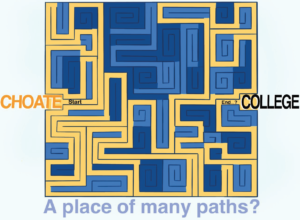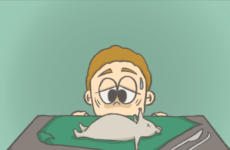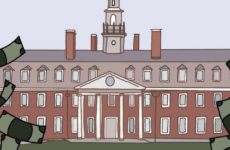Last week, juniors took the first step toward their future; they were assigned college counselors. Of course, most Choate students attend college. However, for some students, college is not the best next step in their lives. Choate advertises itself as a “place of many paths,” and yet the only path for which students are assigned a counselor is to prepare for college.
At Choate, we are often bombarded with pressure to get into top-notch universities. This culture enables students to feel that if they do not get into a prestigious Ivy League school, they have wasted their Choate education. Even Choate’s mission statement declares that through a lively curriculum and character-building atmosphere, “students are prepared to seek knowledge for its own sake and to pursue further study at the finest colleges and universities.”
Nevertheless, there are other alternatives to college that are equally as stimulating and valuable. Joining the military can be a rewarding experience to pursue many different passions at a low cost. Apprenticeships and trade schools allow students to get hands-on experience shortly after high school. Attending community college before transferring to a different school, or taking a gap year to volunteer or travel before making any decisions about the future may prove to be more beneficial than rushing directly into college after graduation.
As a school that looks to cultivate a sense of community, strong character, and curiosity, we as students shouldn’t adopt the mentality of solely striving to go to the “best” university, but instead, encourage one other to pursue a path that will develop our passions and allow us to reach our goals.
However, there is only so much the School can do. This problem is closely tied to our society-wide obsession with “success.” Everyday, students panic about the dreadful 89% they received on their last test, compete over who got the least amount of sleep, or critique each others’ extracurricular choices as they, with raised eyebrows, remark, “What will colleges think?” For many, the result of every quiz, selection of every class, and application to every special program is strategically planned out in anticipation of college and, subsequently, a career.
The college-admission system, as well as the traditional Western standard for success, is flawed, but what is more deeply problematic is the toll it takes on the culture of public and private high schools across the world. André E. Phillips, Director of the Office of Admissions and Recruitment at the University of Wisconsin-Madison, said during an interview for Frank Bruni’s book Where You Go Is Not Who You’ll Be, “We’ve spent so much time talking about packaging that it suggests that the real trick of the collegiate endeavor is to be packaged.” Say a student works hard during high school to mold themselves into the perfect college candidate — receiving good grades, high test scores, volunteer hours, extracurricular pursuits, and leadership positions — and is then admitted to their dream school. They go off to their dream school satisfied and prepared to study a topic that they believe will put them on track for “success” and eventually graduate with a steady, high-paying job. But, what then? Are they happy? What will they have left of themselves? These are the questions we, as high schoolers, must be asking ourselves.
Cheating yourself of a high-school experience by pursuing interests that don’t excite you is essentially a lie. The admissions officer isn’t seeing you or your passions; they are seeing your “packaging.” This changing of yourself for college admission, even if you do get into a top school, does not guarantee “success.” In 2013, the Chronicle of Higher Education looked at one year’s group of Fulbright scholars and determined which schools had produced the highest number of winners. Arizona State University, Rutgers, and the University of Texas all produced more Fulbright winners than Yale, Columbia, Duke, and Stanford. In fact, Stanford tied with Ohio State University, even though more Stanford students applied. While top schools tend to have more opportunities, they do not, by any means, guarantee money, fame, or most important, happiness.
And so, I implore you: think about the class, the club, or the activity that makes you tick. The thing that keeps you staring at the ceiling at night, practically bubbling over with excitement. Pursue this thing. Whether it is the thought of construction, religion, sculpture, biology, politics, or serving your country, chase after it with the same passion and wonder that drew you to it in the first place. This might mean enrolling in a trade school, enlisting in the military, or attending Yale. Do it because you want to, and, with luck, soon our community, both local and global, will improve itself to better support you as you make the courageous decision to follow your own path.





